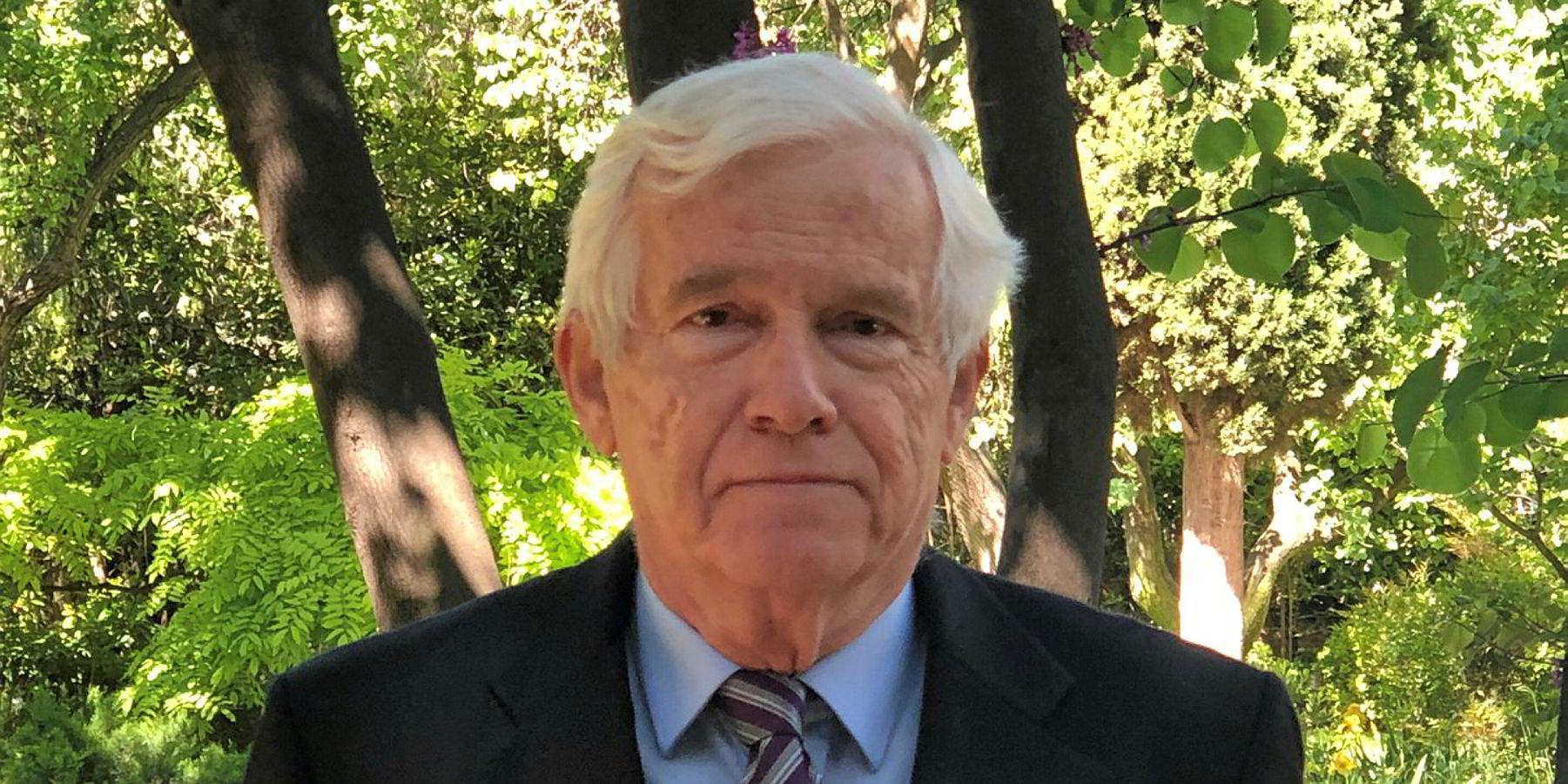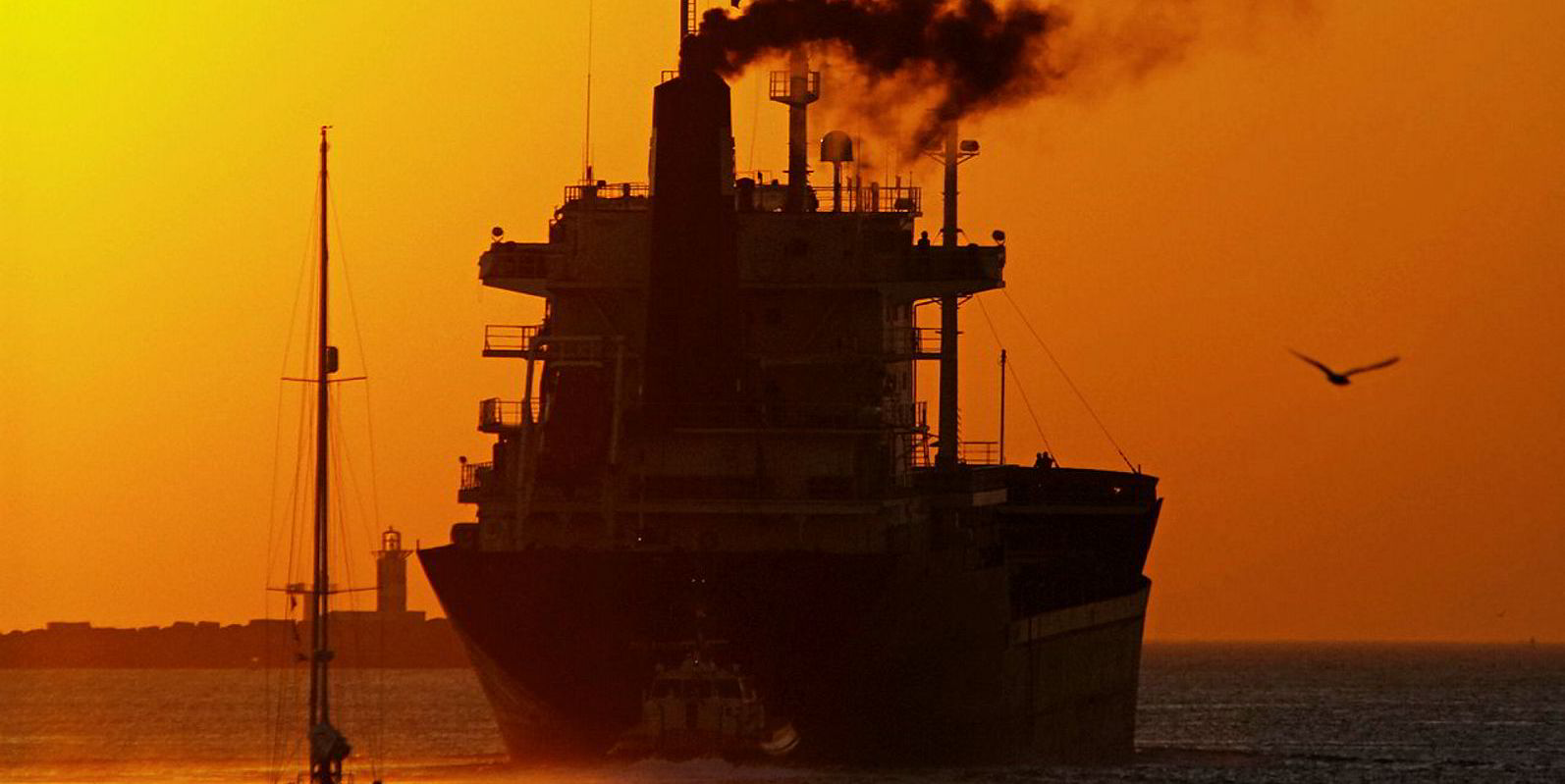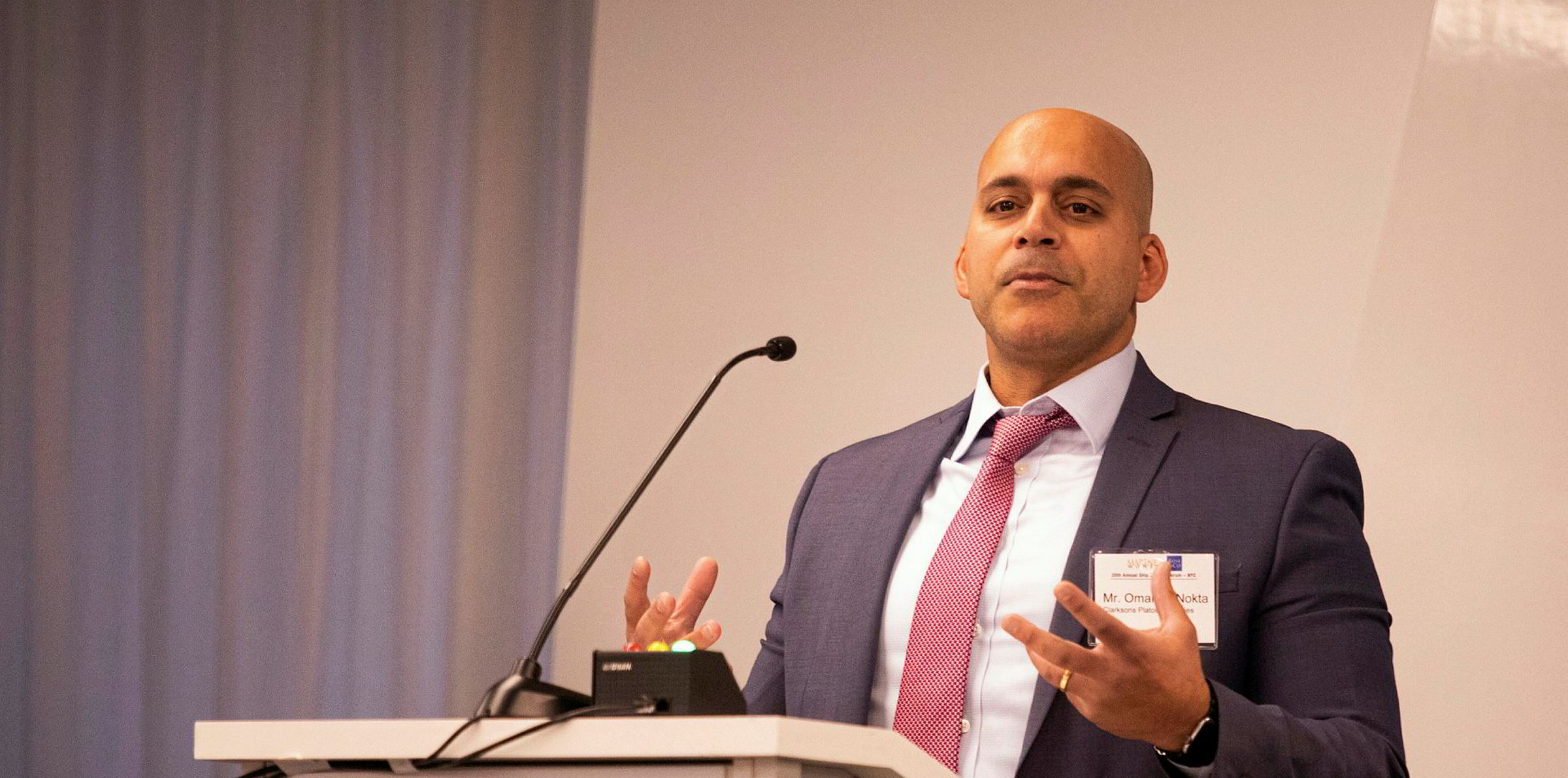The European Union plan to expand its emissions trading scheme (ETS) to shipping will not improve vessel emissions or the environment, Panagiotis Laskaridis argues.
“ETS is simply a tax-collecting instrument,” said the Lavinia Corp and Laskaridis Shipping chief executive, who is also a former president of the European Community Shipowners' Associations.
“It is not a measure to improve either the emissions or improve the environment. We are dead against the ETS,” he told Wednesday's Capital Link Shipping Forum centred on Greek shipping.
Last month, the European Parliament voted to include shipping’s greenhouse gas emissions in the ETS.
Shipowners and operators would need to buy carbon permits to cover emissions emanating from voyages made within the EU, along with those in international waters that start or finish in an EU port.
Laskaridis, who was being questioned by Capital Link president and chief executive Nicolas Bornozis, spoke out against imposing regional measures on shipping.
He said Europe believes the IMO is not acting quickly enough.
The veteran Greek shipowner also hit out at the European Commission directly.
Staying closed and thinking that the world is not looking at us is gone now
Panagiotis Laskaridis
“We now have a commission that is fanatically influenced by the Green movement,” he said.
“That is not a bad thing in itself, but they are driving it to extremes.
“If the ETS were to pass, then I’m sure this would be very detrimental to the international trade.”
Laskaridis does not believe the EU’s proposal for stricter measures for vessels trading in European ports would create a competitive advantage for those complying with them.
Even if some sharpened their competitiveness, he said, the damage this will do by introducing regionality in shipping would be far greater.
“There is nothing worse than having different rules for different places,” Laskaridis said. “This must be avoided at all costs.”
He said Greece, which owns more than 20% of the world fleet, lacks global influence in maritime affairs because it does not have a large shipping cluster as other countries have, and has traditionally been quite closed.
“These things have changed for good and they have changed forever and therefore we must also change,” he said.
“Greek shipping, Greece and our union must become more aggressive and more open and present our views and policy and strategy.”
Laskaridis said the one thing he has learned in his time working in Europe is that Greece must come out with its own positions rather than defending and commenting on the positions of others.
“This is the right way to go. Staying closed and thinking that the world is not looking at us is gone now. It’s finished. The train has left the station.”







